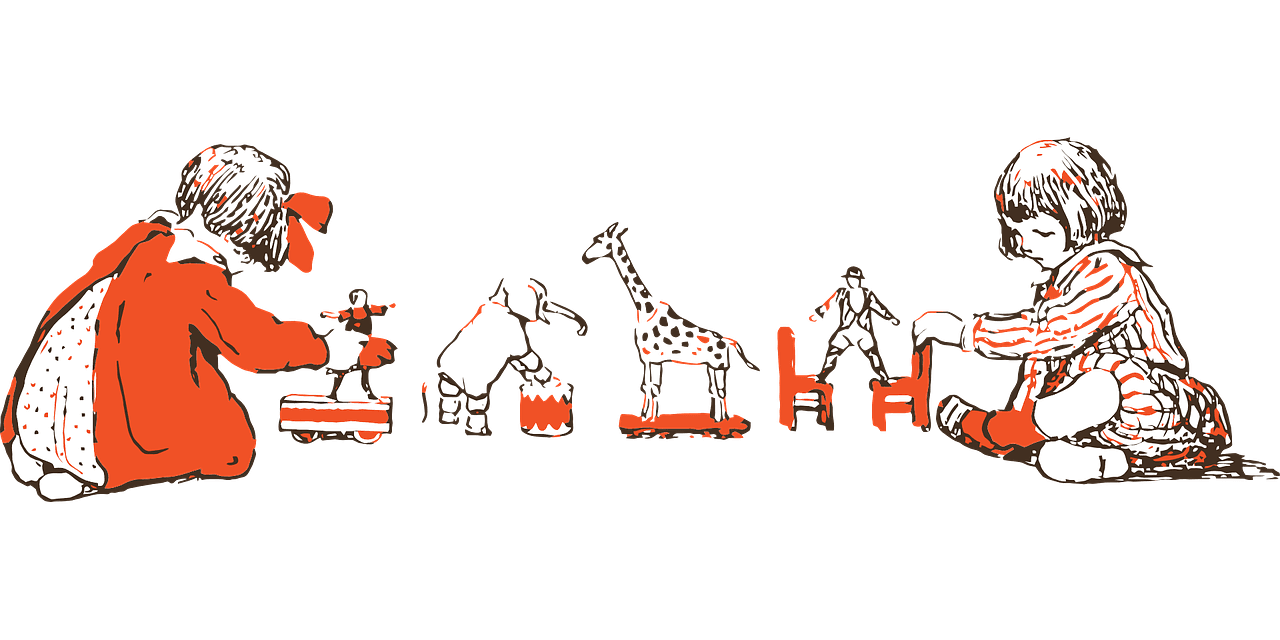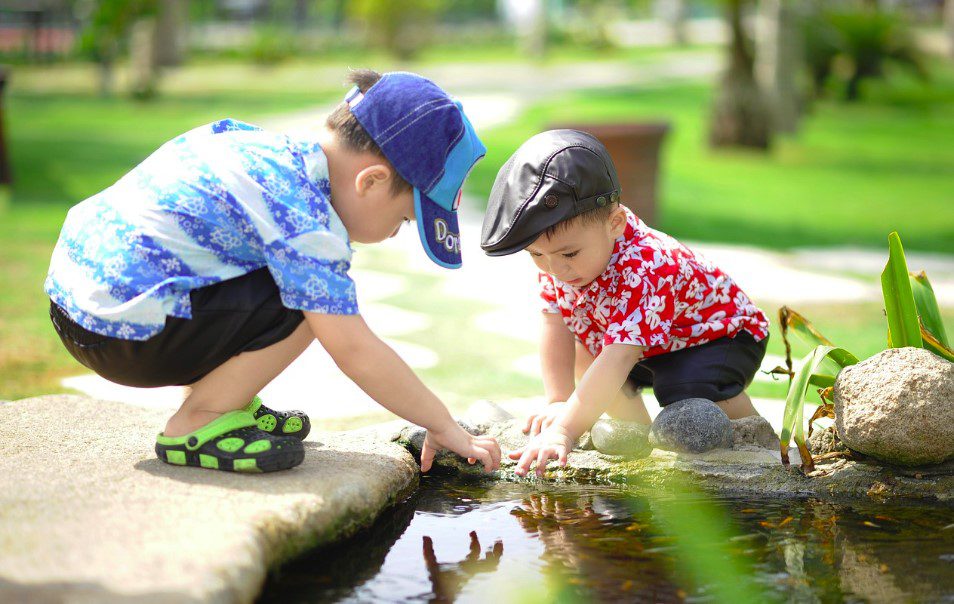Unstructured play, often referred to as free play, is the spontaneous and self-directed play that children engage in without any predefined rules or guidelines. It is a cornerstone of childhood development that promotes creativity, problem-solving skills, social skills, and emotional intelligence.
When children are given the freedom to engage in play without rigid structures, they develop the ability to think outside the box. They also learn to come up with novel solutions to challenges they encounter.
In contrast to structured play, unstructured play offers a unique and invaluable opportunity for them to experiment and create within an environment that prizes self-expression and spontaneity.
This form of play nurtures their imagination, to enable them to create entire worlds, scenarios, and narratives. This automatically enhances their storytelling skills.
The Good About Unstructured Play

1. Cognitive Development
Cognitive development refers to the growth and maturation of a child’s mental abilities. These include skills like problem-solving, creativity, memory, and language.
These skills are significantly enhanced when children engage in unstructured play.
When children play without rules, they are forced to come up with their own solutions to problems. This helps them to develop their problem-solving skills and learn how to think differently.
This process aids in the development of critical thinking skills. As children analyze cause-and-effect relationships, they test hypotheses, and adapt their strategies accordingly.
Many unstructured play activities involve measuring, counting, and arranging objects, which indirectly support the development of math and spatial skills. For example, building with blocks or puzzles helps children grasp basic mathematical concepts and spatial relationships.
Engaging in diverse and imaginative play scenarios helps children enhance their memory skills. They remember rules, sequences, and details related to their play activities. Additionally, unstructured play promotes cognitive flexibility, allowing children to switch between different roles and scenarios seamlessly.
Also true, unstructured play allows children to use their imagination and come up with new ideas. This can help them to develop their creativity and become more innovative thinkers.
2. Emotional Growth and Resilience
Emotional growth refers to the development of a child’s emotional intelligence, self-awareness, and the ability to manage and express emotions effectively. Resilience, on the other hand, is the capacity to bounce back from adversity and adapt positively to challenging situations.
Unstructured play contributes to these aspects of a child’s development in several ways:
Free play allows children to express their emotions in a safe and unjudgmental environment. Whether they are role-playing, engaging in imaginative play, or playing with art materials, children can explore a wide range of emotions and learn how to express them appropriately.
Unstructured play serves as a natural arena for children to process their emotions and develop emotional intelligence.
Through unstructured play, children interact with peers and caregivers, leading to a better understanding of others’ emotions and perspectives. This promotes the development of empathy and social skills, as they learn to recognize and respond to the feelings of others.
Unstructured play often involves decision-making, taking turns, and following or creating rules. These activities promote self-regulation, helping children learn to control their impulses and emotions, which is a critical aspect of emotional growth and resilience.
In addition, unstructured play teaches resilience, as children encounter setbacks and conflicts during playtime and learn to resolve them independently.
Examples of Free Play for Children

- Imaginary Play: Children can engage in imaginative scenarios using dolls, action figures, stuffed animals, or even just their imagination. They can act out roles, create stories, and build their own worlds.
- Outdoor Exploration: Playing outside gives children the chance to explore nature, and play with sticks and rocks. They also get to jump in puddles, climb trees, and develop their physical skills.
- Pretend Kitchen or Store: Setting up a pretend kitchen or store with play food, cash registers, and shopping carts lets children engage in role-playing activities and use their creativity.
- Nature Exploration: Going on nature walks, collecting leaves, stones, and observing insects can foster a sense of curiosity about the world around children.
- Building with Blocks: Blocks, whether wooden, plastic, or cardboard, offer children the chance to build structures, experiment with balance, and develop spatial reasoning.
- Treasure Hunts: Creating simple treasure hunts with clues or hidden objects can be an exciting way for children to use their critical thinking and deductive skills.
- Dress-Up and Role Play: Dress-up clothes and props like hats, scarves, and old costumes can help children pretend to be different characters. This allows them to explore various roles and situations.
- Artistic Expression: Art supplies like crayons, markers, paint, and paper encourage children to create own artwork without any specific guidelines.
- Sensory Play: Activities involving sand, water, playdough, slime, and other tactile materials allow children to engage their senses.
- Cardboard Box Play: Large cardboard boxes can become anything in a child’s imagination—a spaceship, a castle, a car, or a secret hideout.
- Music and Dance: Children can experiment with making music using simple instruments. It can be just their voices, or they can dance freely to music.
Even more:
- Building Forts: Using cushions, blankets, and furniture, children can create forts or hideaways where they can spend time reading, playing, or relaxing.
- Puzzle Solving: Providing puzzles of various difficulty levels encourages problem-solving skills and challenges children’s minds.
- Science Experiments: Simple experiments with water, baking soda, vinegar, and other household items can spark curiosity about the natural world.
- Collecting and Sorting: Children can collect items like leaves, rocks, or buttons and then sort them based on different attributes like color, size, or shape.
Tips for Parents:

1. Balance Screen Time with Playtime
In the digital age, where screens seem to dominate every facet of life, unstructured play takes on even greater importance.
The allure of electronic devices and the virtual world can detract from the richness of real-world experiences. It falls upon parents and caregivers to strike a balance between screen time and playtime.
Providing ample opportunities for children to engage in physical, imaginative play not only supports healthy development but also fosters a deeper connection with the world around them.
2. Create an Environment for Unstructured Play
To fully harness the benefits of unstructured play, it’s crucial to create an environment that encourages and facilitates such activities.
Designate spaces where children can explore, experiment, and create freely. Keep a variety of open-ended toys and materials that promote imaginative play. These include art supplies, building blocks, and dress-up costumes.
Allow children to guide their play experiences without imposing adult agendas. Embrace the messiness and unpredictability that come with unstructured play. It is within this chaos that true growth and learning can occur.
The Joys of Unstructured Play for Parents
Unstructured play is an essential part of childhood. It provides children with the opportunity to learn and grow in many ways. By providing them with plenty of opportunities to play, we can help them develop the cognitive, social, and emotional skills they need to succeed in life.
As parents, caregivers, and educators, it is incumbent upon us to recognize the profound influence of free play.
By prioritizing the thrill of exploration, the marvel of imagination, and the magic of unstructured play, we lay the cornerstone for generations that are not solely academic, but also creative and emotionally resilient.





Leave a Reply